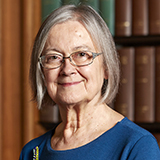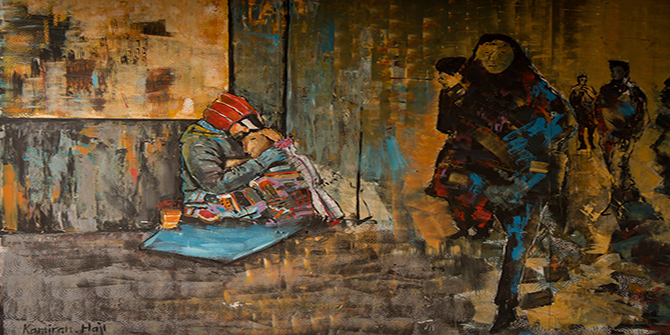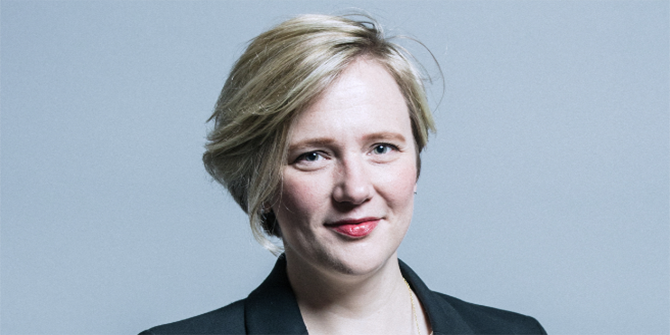 Does it matter in a case if the judge is a man or a woman? If it does, why are there still so few women in the upper ranks of the judiciary? Would mandatory quotas help address the over-representation of men in public life? Lady Hale, President of the Supreme Court and the first woman to have held this and other senior judicial positions, discusses gender equality with Artemis Photiadou.
Does it matter in a case if the judge is a man or a woman? If it does, why are there still so few women in the upper ranks of the judiciary? Would mandatory quotas help address the over-representation of men in public life? Lady Hale, President of the Supreme Court and the first woman to have held this and other senior judicial positions, discusses gender equality with Artemis Photiadou.
I think a common question people have is why does it matter if a judge is a man or a woman?
In an individual case it might not matter at all. What matters more is that the judiciary as a whole is more reflective of the population that it serves. And there are at least four reasons why that matters. The first is that the general population should feel that the courts are their courts, that they have a legitimacy with the entire population, and that it is not just a small section of society that is sitting in judgment on the rest. The second reason is that the law should be all about justice, fairness, and equality. If the judiciary doesn’t look as if it’s practising equality, it may not be practising fairness, and it may not be practising justice. The third reason is the many capable people out there – all those able women whose talent should not be wasted and who could make good judges – must be recognised, encouraged and brought on. And the fourth reason is that there is just a possibility that, from time to time, in certain circumstances, women might make different decisions from men, or encourage men in collegial court to make different decisions from the ones they would have made had there not been a woman there.
If diversity is clearly so important, why is there so little of it, especially in the upper echelons of the legal profession?
That’s a fairly complicated matter. The way to improve diversity at the top is to improve it at the bottom and then to try and progress the careers of the good people who join the judiciary in the lower ranks. Part of it is that women have been entering the legal profession in equal numbers to men for some time, but they have not been reaching the top in the same proportions. With ethnic minorities, it’s more recent that they have been entering the legal profession in such numbers. One hopes that improving their representation will be tackled in the same way as women’s representation has been addressed.
Simply hoping that the women will ‘trickle up’ has not been good enough and that is largely to do with the assumptions about who qualifies for what judicial job. The assumption has long been that the top QCs become High Court judges; other barristers and some solicitors become Circuit judges; mainly solicitors but a few barristers become District judges, both in the County Courts and the Magistrates’ Courts; and a wide variety of people – barristers, solicitors, academics – become Tribunal judges. That’s been the pattern. Breaking that pattern is very difficult. Convincing people that women, or other minorities, who’ve had different careers could nevertheless be good judges – and of course enabling them to prove that they could be – that’s the stumbling block.
There are also quite a lot of women who find it challenging to combine independent practice at the Bar or as a solicitor with having a family, and trying to do so can sometimes be viewed rather dismissively, particularly in big firms.
When looking for solutions, where do you stand in the debate about mandatory quotas – are they discriminatory or necessary?
Mandatory quotas are obviously discriminatory. At the moment we have a law which says that it is just as bad to discriminate against a man as it is to discriminate against a woman. This means that you are not supposed to take gender into account in making your choices, even if you know that your institution will be better off if it had a better gender balance. So any sort of mandatory quotas or all-women shortlists – which I don’t think would be practical for judicial appointments – would require legislation. And I don’t foresee that happening.
But I think that a lot of institutions probably feel that it is unfortunate that they are not allowed to take gender into account – and ethnicity, and professional background, many sorts of dimensions of diversity – when looking at the overall composition of the workforce, or the judiciary or a Collegial Court. I had a very interesting letter from the then Chief Constable of the Greater Manchester Police: he said that when you’ve got some really difficult cultural issues to deal with in a community, you need to be able to recruit people from that community to the police, so that they can really understand what’s going on, and communicate what’s going on to the police. He wanted to be able positively to discriminate in favour of members of certain communities that make up the Greater Manchester population, for good operational reasons. Of course, he was not allowed to do that.
With all the gender and class barriers, what factors contributed to you overcoming them and becoming the first woman to hold some of the most senior positions within the legal system?
I wouldn’t put too much on the class thing in my case. I did go to a state school rather than an independent school, and my family never had any money because they were all teachers and clergymen, but I am very solidly professional middle class. That gives you a sense of possibility, which people from different sorts of background may not have. The other big advantage I had was that I went to Cambridge. I doubt whether I would be where I am today if I hadn’t been to either Oxford or Cambridge. So many of the top judges have been there and it means instantly that they take you seriously because you’ve been to Oxbridge.
I think I have been incredibly fortunate being in the right place at the right time. In other words, just at the beginning of the time when Chambers were beginning to take in women. I was the second woman to go into the Chambers I joined in Manchester – so credit to the first, she hadn’t put the chaps off having me! I was lucky to get a teaching job at the University of Manchester, and they wanted me to combine practice and academia. There are all sorts of lucky things that happened – I could go on for a long time telling you how lucky I have been.
I reached a point in my academic career when I was a credible candidate to be a Law Commissioner at a time when I think being a woman was no bad thing. This is a Lord Chancellor’s appointment and they hadn’t had a woman, so they actually asked me whether I wanted to apply, and I did. And similarly they were looking for women to appoint as judges, and they were a bit nonplussed about where to look in those days. Again they tapped me on the shoulder to be a part-time judge, and that was also good fortune. Eventually they plucked up the courage to give me a full-time job. Then, I think, it was that I proved myself able to do it.
It’s quite a common experience for women to have felt patronised at work – can you relate?
I am sure I will have been patronised! But, you know, I probably didn’t notice, probably because I am always so absorbed in whatever I am doing. I have very good concentration skills, so I do tend to concentrate on what I am doing. My husband came into the Supreme Court yesterday, while I was presiding over the hearing, and I didn’t notice until he was leaving the court room. So there are lots of things I don’t notice. And that’s not a bad thing. But I was once accused by a University colleague of patronising him and that really made me think!
__________
Note: in February 2018 Lady Hale was speaking at an LSE Law event, celebrating 100 years votes for women. A podcast and a video of the event can be found here.
 Lady Hale is the President of The Supreme Court. In October 2009 she became the first woman Justice of The Supreme Court. In January 2004, Lady Hale became the United Kingdom’s first woman Lord of Appeal in Ordinary after a varied career as an academic lawyer, law reformer, and judge.
Lady Hale is the President of The Supreme Court. In October 2009 she became the first woman Justice of The Supreme Court. In January 2004, Lady Hale became the United Kingdom’s first woman Lord of Appeal in Ordinary after a varied career as an academic lawyer, law reformer, and judge.






